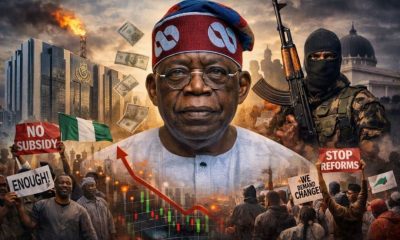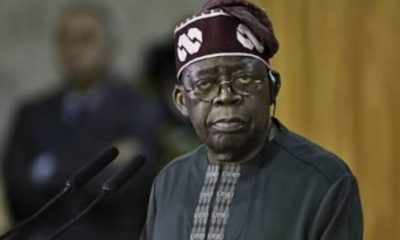Bank
VAT Discourse And Tinubu’s Pan-Nigerian View By Salamah Akindeko
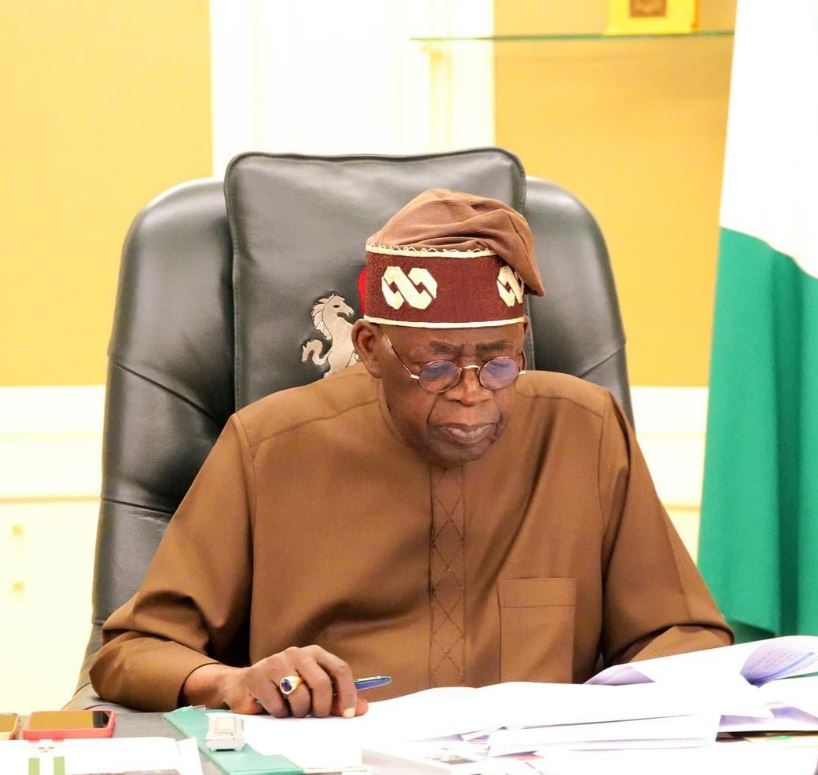
VAT Discourse And Tinubu’s Pan-Nigerian View
By Salamah Akindeko
If we agree with the utilitarianist view that one thing a leader must do is consider making choices that produce the greatest good for the greatest number of people, then Nigerians should commend President Bola Tinubu for choosing to break away from the past by elevating common national interest to a new level. And this did not start when he became president as this leadership trait had been demonstrated in various spheres he had held sway. His antecedents speak for him.
In May last year, President Bola Tinubu reinforced this view that he is for all. He pledged to govern Nigeria impartially and in accordance with the Constitution as well as the rule of law. He went further to task the citizenry to embrace national affinity and brotherhood. To observers who look at things dispassionately, this avowed commitment of the President has largely reflected in how he has been running his administration since he took over the reins of government.
President Tinubu, in his inaugural speech, among other things, said: “Today, let us recommit our very selves to placing Nigeria in our hearts as the indispensable home for each and every one of us regardless of creed, ethnicity, or place of birth…The South must not only seek good for itself but must understand that its interests are served when good comes to the North. The North must see the South likewise,” he had said.
One area where President Tinubu has again shown fidelity to his commitment is on the discourse around sharing formula for Value-Added Tax (VAT). Let me use this opportunity to correct erroneous impression that the North is against the president’s tax bills. The disagreement voiced by some northern leaders is on the proposed adoption of derivation model/approach to sharing of VAT revenue. VAT is only a portion of the bills. For emphasis, the four bills currently being scrutinized by the parliament seek to overhaul and modernise the country’s fiscal landscape in a way that brings benefits to the citizens and the three tiers of government.
Revealing President Tinubu’s position at an interactive session with members of the parliament recently, chairman of the Federal Inland Revenue Service (FIRS), Zacch Adedeji, said the president is concerned that Lagos and three other states go home with 70% of VAT revenue monthly, with Lagos (the president’s state) collecting the lion’s share of 42%.
“Today, I just signed the data on VAT [sharing] for October. Lagos will take 42% of the VAT[revenue], Rivers will take 16%, Oyo State will take 5.2%, and the FCT will take 10%. Go and check; these three states [and the FCT] are taking more than 70%. Why? Because those are the places where the head offices of those companies.…states like Borno and Bauchi collect only 0.32% and 0.4% of VAT proceeds respectively, compared to Lagos’ 42%.
“Any day I sign off on the data, I don’t feel like I am a Nigerian because this is not what we represent in our prayer as a nation. That is why, in the wisdom of Mr. President, we need to change this structure,” Adedeji told the lawmakers.
Listening to Adedeji, one would know that President Tinubu is a fair and just leader. He could have directed that status quo be maintained when some northern leaders apparently misjudged his intention on the subject. After all, Lagos and two other states will continue to cash out, while majority of the states will be left with what they currently get from the pool. So, the current attempt at reengineering the tax system is a big sacrifice for which Tinubu should be commended.
While there has been opposition to an aspect of the bills from the North, it is salutary that there are equally voices of reason who have studied the Bills and have seen the goodness of the heart of President Tinubu. A pro-North former Kaduna senator, Shehu Sani, while commending the Bills, said they are not in any way anti-North. According to the fiery critic,” It’s in fact economically beneficial and fair to all parts. People should keep aside sentiments and read the Bills carefully. It is a comprehensive and bold move to harmonise and simplify tax administration and streamline its operations and enforcement “
The Speaker of the House of Representatives, Tajudeen Abass, at the interactive session, located the controversy surrounding the VAT aspect of the Bills rightly, describing it as a reflection of their importance. For him, such debates are healthy and necessary in a democracy.
Apart from the fact that these Bills will when passed into law and assented to make states to look inwards and rethink, the issues of imbalance, fairness would be addressed by promotion of equitable distribution of the VAT revenue. These are some of the grey areas the reforms seek to address.
That noted, the total benefits of the bills should have been considered by those raising issues on VAT. People forget easily the confusing overlap of multiple tax laws. For example, why should small businesses pay taxes to the three tiers of government, a development that makes taxation unnecessarily complex? Why should there be multiple laws dealing with almost similar aspects of taxes in such a way that compliance with tax obligation is made difficult for taxpayers? Why should Nigeria not have a law that regulates cryptocurrency operations within its territory? Why in 2024 should we as a country be operating under laws that were made in 1939 (Stamp Duty Act), laws that are archaic and unfit for businesses in this modern time? The Federal Inland Revenue Service (FIRS) has to give way for the Nigeria Revenue Service (NRS) in order to accurately reflect the agency’s comprehensive services.
If there is any state that should be bellyaching over the proposal on restructuring of VAT sharing formula, it should be Lagos State. If there is any region whose voice should be loudest against the bills, it should be the South-West. But Lagos and the South-West understand where the President is coming from and have strong faith in his capacity to act in the best interest of the country.
With the town hall meeting held by Channels TV on the subject and with the kind of end-of-discussion explanation provided by Mr Taiwo Oyedele, who chaired the presidential committee on the matter, all opposition should stop henceforth. The National Assembly is there to look into the concerns raised by a few people and seek out ways to iron out those issues with vitiating the general objective of the Bills. It will not serve the interest of those speaking against the Bills if Lagos, which is going to be the biggest loser in the proposed VAT regime, sees reason to challenge either the status quo ante or the proposal. It will be recalled that in the immediate past administration, the issue of VAT sharing was litigated. A political option was sought to prevent the matter from running its full course.
Salamah Akindeko, a finance enthusiast, writes from Ila, Osun State
Bank
Alpha Morgan to Host 19th Economic Review Webinar

Alpha Morgan to Host 19th Economic Review Webinar
In an economy shaped by constant shifts, the edge often belongs to those with the right information.
On Wednesday, February 25, 2026, Alpha Morgan Bank will host the 19th edition of its Economic Review Webinar, a high-level thought leadership session designed to equip businesses, investors, and individuals with timely financial and economic insight.
The session, which will hold live on Zoom at 10:00am WAT and will feature economist Bismarck Rewane, who will examine the key signals influencing Nigeria’s economic direction in 2026, including policy trends, market movements, and global developments shaping the local landscape.
With a consistent track record of delivering clarity in uncertain times, the Alpha Morgan Economic Review continues to provide practical context for decision-making in a dynamic environment.
Registration for the 19th Alpha Morgan Economic Review is free and can be completed via https://bit.ly/registeramerseries19
It is a bi-monthly platform that is open to the public and is held virtually.
Visit www.alphamorganbank to know more.
Bank
Separating Fact from Confusion: What Nigerians Need to Know About the 7.5% VAT on Banking Service Fees
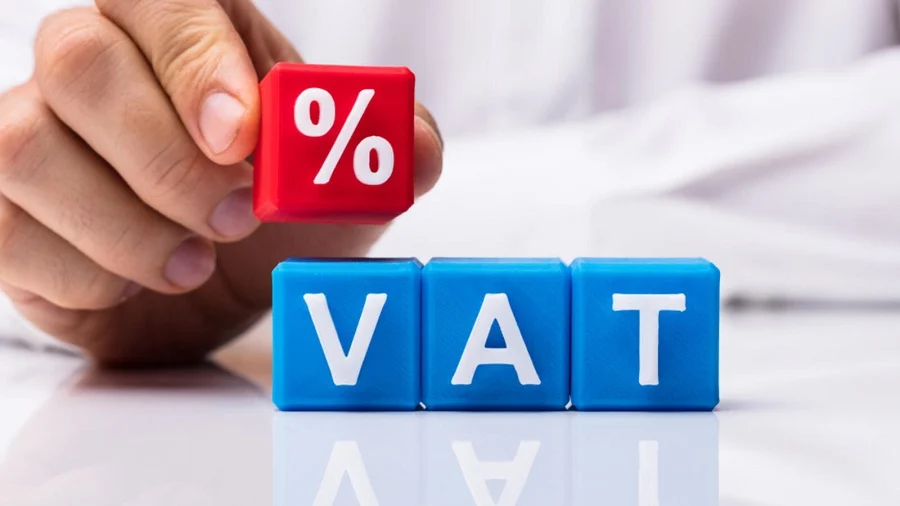
In recent weeks, digital-banking customers and social media, especially on Twitter have raised concerns about deductions labelled as “VAT” on transfers and other charges.
Some dangerously false narratives, which when you take a critical look, you’ll clearly see that they have been orchestrated and sponsored by malicious elements, have given the impression that the 7.5% Value Added Tax (VAT) is a new or arbitrary charge introduced by fintechs, or that it applies to the amounts customers send. These claims are misleading and deserve careful clarification which is the purpose of this piece.
First, it’s important to understand how VAT works in Nigeria’s financial sector today. VAT on fees and charges for financial services has long been part of Nigeria’s tax system. The then Federal Inland Revenue Service (FIRS) had issued information circulars on March 31, 2021 where it stated that VAT on Financial Services (Circular No. 2021/04) that most fees, commissions, and charges by financial institutions (banks, insurance companies, brokers) are subject to 7.5% VAT.
This justifies a recent advertorial the Nigeria Revenue Service (NRS) which stated unequivocally that VAT was not newly introduced on banking service charges by recent tax reforms, and that it did not impose a new tax obligation on customers in that regard.
However what was left unsaid in that publication was that on the 12th of December, the tax agency had written to all financial institutions and payment gateways based on past meetings with operators that following from the new Tax Act, they were reminded of their mandatory obligations to collect, deduct and remit VAT at the prescribed rate.
The Agency then gave an 18- day grace period to all players to configure and align their systems while directing full compliance with the directive with effect from January 19, 2026. And so, some fintechs sent messages to their customers in the spirit of clarity and transparency.
It must be said that what has changed is that in a bid to widen the tax net, microfinance banks and fintechs who were not obligated to deduct and remit said VAT before now, have now become compelled to do so. The enforcement and standardised collection of VAT across banks and fintech platforms including mobile transfers, USSD transaction fees, and card issuance fees with compliance deadlines issued by tax authorities. So why anyone would vilify any financial institution obeying the laws of the land beats my imagination.
For those who have raised questions around transparency and wrongly suggesting that fintechs are suddenly imposing new, unexplained costs on users – as it has been explained above, this is a matter of regulatory compliance, not a lack of transparency or customer exploitation. These VAT deductions are not new fees created by the companies themselves, and providers are not arbitrarily raising their prices.
In closing, two things that everyone must bear in mind as we move forward in this new tax climate – all stakeholders including fintech platforms and regulators must communicate better and clearly. Nigerians must refrain from peddling unsubstantiated claims and malicious narratives, it has no benefits for anyone and erodes trust in systems.
Bank
FirstBank Introduces Exclusive 500-Seater Bleacher at Carnival Calabar & Festival 2025
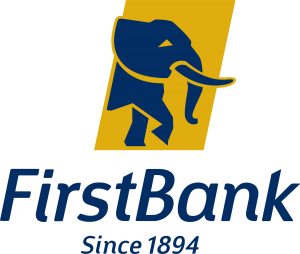
FirstBank Introduces Exclusive 500-Seater Bleacher at Carnival Calabar & Festival 2025
Lagos, 26 December 2025 – FirstBank, West Africa’s premier financial institution and financial inclusion services provider, has officially announced its sponsorship of the Carnival Calabar & Festival 2025, unveiling a landmark addition set to redefine the carnival experience — the first-ever private premium seating area at the event.
The highlight of FirstBank’s participation is the construction of a 500-seater premium bleacher, designed to provide comfort, safety, and an elevated viewing experience for carnival enthusiasts.
Speaking on the sponsorship, the Acting Group Head Marketing and Corporate Communications, FirstBank, Olayinka Ijabiyi, noted that the carnival aligns with the Bank’s First@Arts initiative, a platform dedicated to supporting the creative arts value chain across Nigeria. He said, “We recognise the transformative power of the arts, including carnivals, in inspiring people and strengthening national unity. For more than 131 years, we have supported platforms that promote self-expression, social reflection and cultural exchange. Our investment in the Carnival Calabar & Festival demonstrates our commitment to preserving the nation’s rich cultural heritage through First@Arts.”
“As part of our sponsorship this year, we are introducing the first-ever private 500-seater premium bleacher to further elevate the carnival experience. This exclusive seating is designed to provide exceptional comfort and an unforgettable viewing experience for attendees,” Ijabiyi added.
The Chairman of the Cross River State Carnival Calabar Commission, Gabe Onah, also commented on FirstBank’s sponsorship. “FirstBank’s involvement is a strong demonstration of private-sector support for culture and tourism. This partnership not only enhances the overall quality of the carnival but also strengthens its global appeal,” he said.
The Carnival Calabar & Festival 2025 is officially marketed by Okhma Global Limited, the appointed Official Marketer responsible for brand partnerships, promotional engagements, and ticket sales. Okhma Global Limited has partnered with the Cross River State government in delivering Carnival Calabar & Festival for over ten years, playing a key role in strengthening the carnival’s commercial growth and global visibility.
-

 celebrity radar - gossips6 months ago
celebrity radar - gossips6 months agoWhy Babangida’s Hilltop Home Became Nigeria’s Political “Mecca”
-

 society6 months ago
society6 months agoPower is a Loan, Not a Possession: The Sacred Duty of Planting People
-

 society5 months ago
society5 months agoReligion: Africa’s Oldest Weapon of Enslavement and the Forgotten Truth
-

 news6 months ago
news6 months agoTHE APPOINTMENT OF WASIU AYINDE BY THE FEDERAL GOVERNMENT AS AN AMBASSADOR SOUNDS EMBARRASSING


